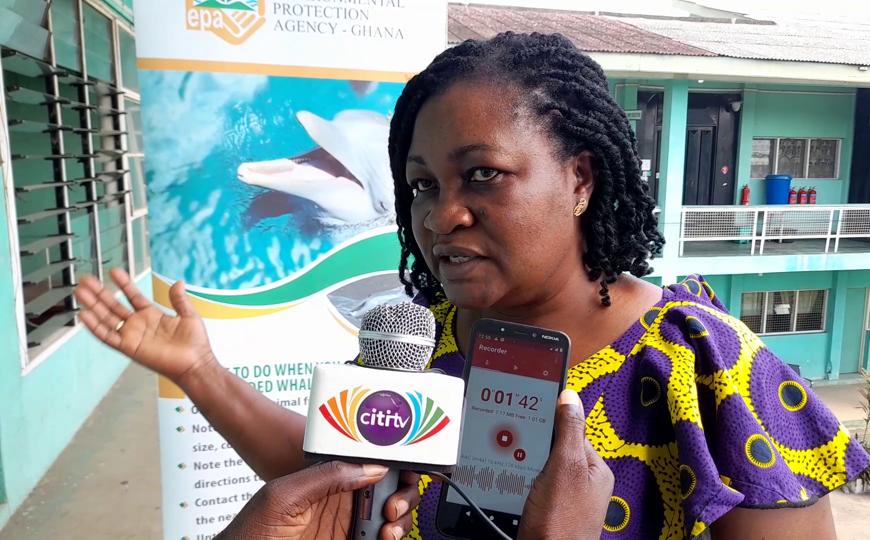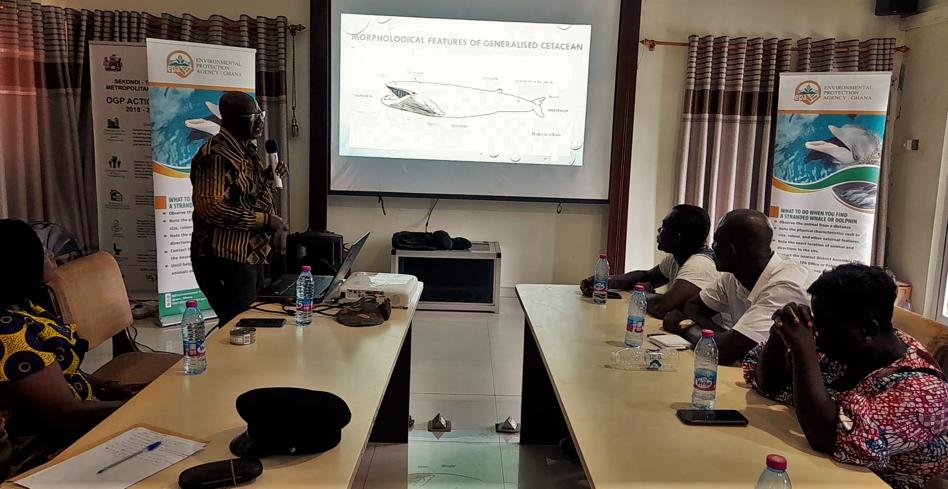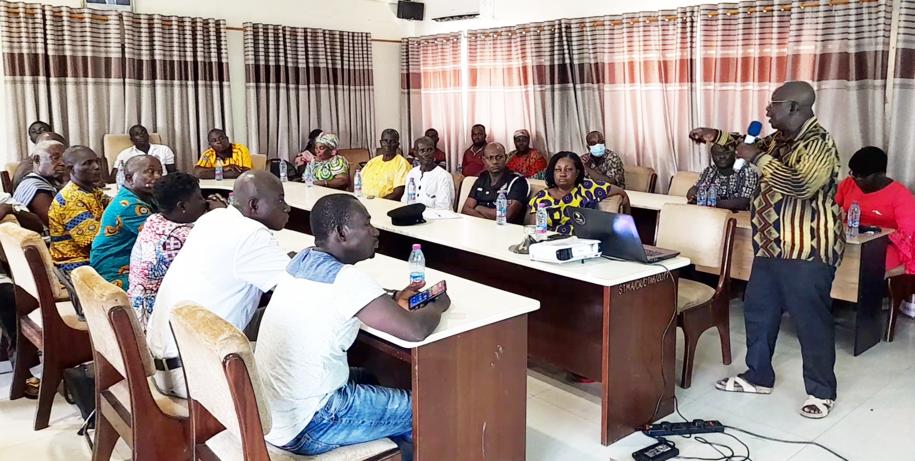A senior lecturer at the University of Ghana’s Department of Marine and Fisheries Sciences, Prof. Ofori Danso, says fishermen are endangering stranded sea mammals as well as themselves for lack of knowledge on the importance of sea mammals to the environment.
Prof. Danso who was speaking to Citi News after his presentation at an Environmental Protection Agency’s organised sensitization workshop in Sekondi on environmental challenges at the coast, said Ghana has many laws for the protection of the environment including endangered sea mammals but what is needed is a deepened sensitization of the public.

“This is about how to handle the stranded whales and Dolphins because there are dangers associated with stranded Whales… We have enough regulations to carry out this business of conserving mammals in our coastal waters. Very often, you see the institutions responsible may not have enough logistics to work, otherwise, we have laws and rules… It is the lack of education. Many are not even aware of their role and the importance of the animals here. So it is continuous awareness and education that must be promoted and then the institutions responsible like Fisheries Commission and the EPA should be well resourced so that they can sensitize the public about the rules and regulations“, he said.
For the Environmental Protection Agency and the Fisheries Commission to have more professionals to perform their mandate, Prof. Danso said the Department of Marine and Fisheries Sciences is training more marine mammal scientists.

The Acting Director of the Department of Natural Resources at the Environmental Protection Authority, Jewel Kudjawu told Citi News the rationale of the training attended by fishermen from the Western Region, Civil Society Organisation and local assembly members is to build their capacity on the management of sargassum, beach sand winning, mangrove degradation, pollution of coastal waters and protection of sea mammals.
“We want to train the fishermen to understand that these whales are not fishes but mammals which are supposed to be protected when they come to the shore. We took them through how to report to us so that we can come to dispose of the carcass well. This is because when these dolphins and the whales come to the shores, it has a lot of repercussions on the coastal communities. It is also important that when the mammals come to the shore, we are told on time, so we act on time. Some also come stranded and when we are able to act on time, we can send them back into the waters”, she said.

While challenging the fishermen and other participants to allow the information gained to trickle down in their various communities, Jewel Kudjawu also called for more financial supplies to expand sensitization work.
“We expect that whatever we have shared with them, they will go and also create awareness within their communities. We have also given them posters, flyers, and training manuals to use to share with their communities on the need to protect these whales and dolphins. However, we need financial and logistical support because in all these things, money is required for us to go about the work to reach a lot more coastal communities“, she added.

Fishermen who attended the awareness capacity building commended EPA for exposing them to the various sea mammals and their importance to the marine domain.
The training also comes on the back of recent unexplained washing ashore of some sea mammals in Axim and Accra, which some coastal dwellers took home to eat and even sell to the public.
It later turned out that the mammals came to the shores because they were stressed.














